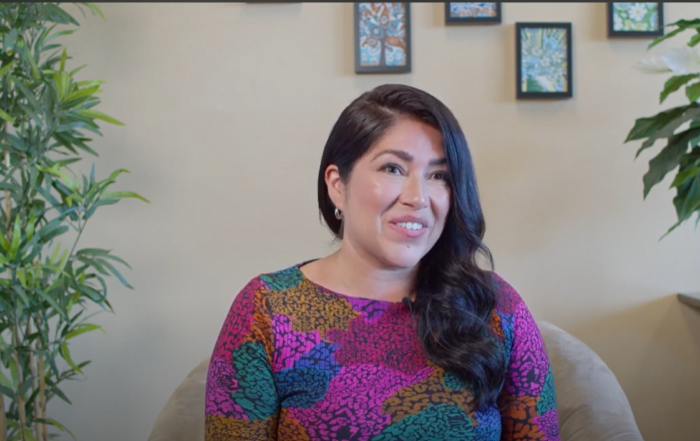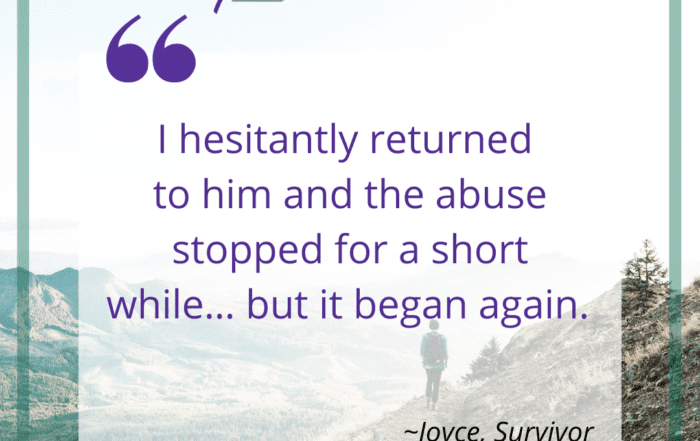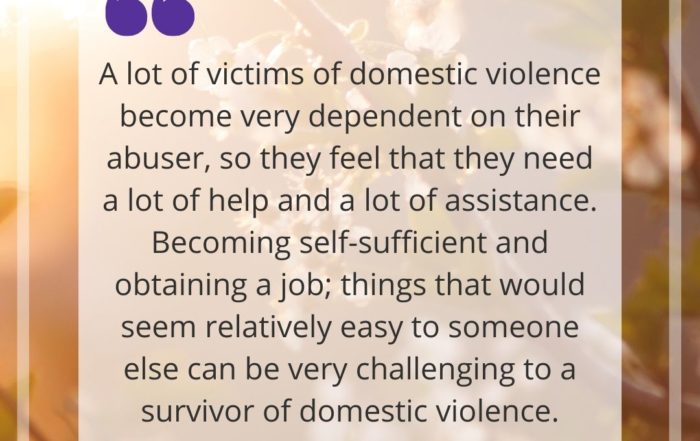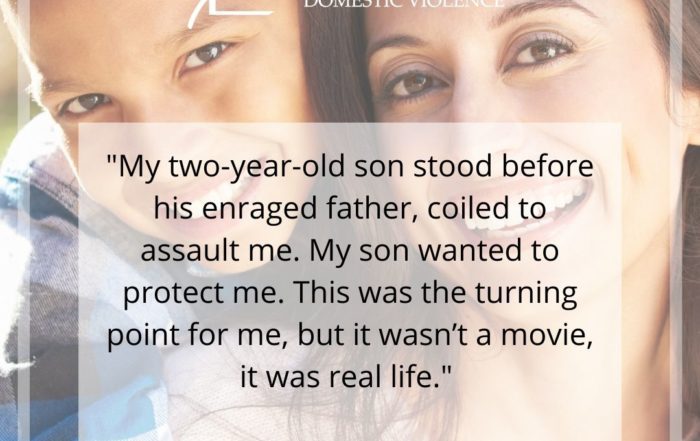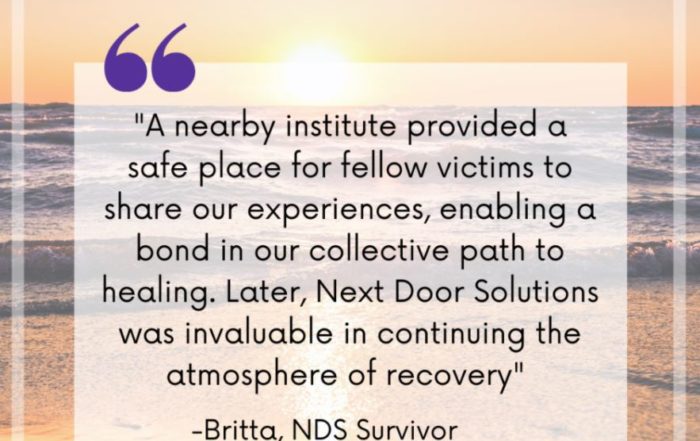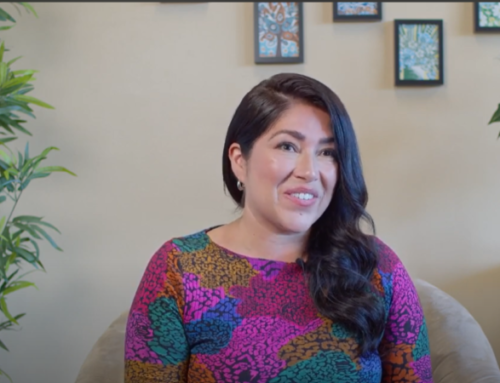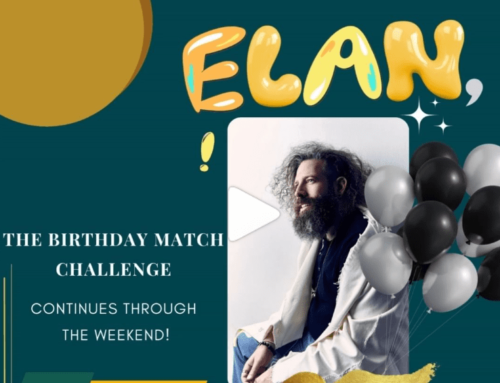Trigger Warning
This story may contain descriptions of physical and sexual violence that may be upsetting. Please consider your triggers and well-being before reading. Seek help if needed.
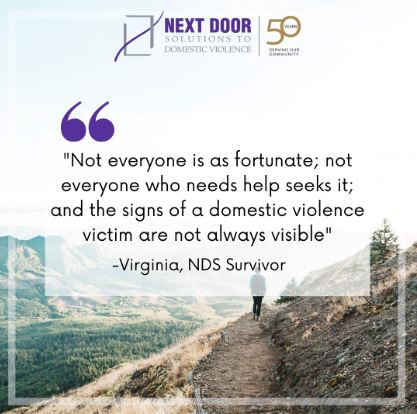
Above all else, I was heard, understood, believed, …
This Next Door Solutions client agreed to share her story with us for our 50th-anniversary Survivor Story series.
Post-Traumatic Stress Disorder (PSTD) can affect anyone. Look no further than Tina Turner.
45 years since separating from her then-husband, 40 years since a People Magazine interview revealed her personal hell, 34 years since she bared her soul in her autobiography and almost three decades since the movie “What’s Love Got To Do With It” she still feels the burden of the abuse she endured.
And so do I.
“Break a mirror, seven years of bad luck” goes the saying. I am not superstitious, and I do not recall breaking a mirror, but my fortune turned rotten soon after I married my high school sweetheart at age 20. He first hit me – three days after our ceremony – because intimacy was painful. I was to blame went his reasoning, so I should be beaten. Months later, when I threatened divorce, he nonchalantly stated I was his “$10 slave”, a crude reminder of the token cost he incurred to lawfully take me as his wife and rid me of any personal worth.
Like many, I thought a child would help things. A routine event, like a day at the beach or a lazy afternoon at the park, could bring a temporary sense of normalcy. Its calm would soon be shattered by a violent outburst, none as vicious as the one that convinced me to leave. My husband was lying on the sofa reading a magazine when our son playfully swatted it. The toddler just wanted to play; any sane person would know that. But my husband was not sane. A switch flipped; a sensor was triggered; a primal response was unleashed. He choked an innocent child while screaming incoherently, his desire to inflict pain overriding any human and paternal instincts. After what seemed like an eternity, I separated them. He sneered “your mother’s a bitch” as our boy cried, incapable of comprehending what had happened. Then again, no adult could possibly comprehend it, either.
I confided in my son’s pediatrician. His face grew ashen and implored me to seek the help of the Women’s Alliance (WOMA). “Your son is not growing up in that environment,” he said, hinting I was not the only woman he had helped. WOMA helped me procure a restraining order (RSO) and obtain government assistance (SNAP), but above all else, I was heard, understood, believed, and protected. My husband tried to ruin me financially — we owned a business but without my name on its papers, I had no equity. Hoping to find me there, he broke into my mother’s house, ransacking her belongings.
I consider myself lucky: I rebuilt my life, enrolled, and graduated from college, raised my son by myself, volunteered with the Junior League of San Jose, and eventually remarried. My PSTD appeared more than three decades later when a much larger co-worker reacted negatively to a question and invaded my personal space. His threatening tone immediately raised my internal alarms. In purely biological terms, this was stimulus-response. Fight or flight took over, and I was fortunate to be able to flee. Other co-workers would rationalize by saying “he would never touch you.” But then again, isn’t that what people say until someone does touch you?
I confided in a friend who worked in law enforcement and was later diagnosed. Next Door Solutions connected me to PTSD resources beyond those offered by my health plan. A desire to help was awakened in me; I have since fought to have strangulation in the civil code; before it was just added to battery. But not everyone is as fortunate; not everyone who needs help seeks it, and the signs of a domestic violence victim are not always visible. There are now more resources than when I was younger, but everyone has a role to play. Friends. Family. Colleagues. “If you see something, say something” is not an empty phrase. I can tell from my experience.
Give 2023
Our 24/7 Hotline has been in continuous operation since 1971 Calls Per Day on Average in 2023 Help Us During this Challenge from [ Read More ... ]
Survivor Story 8: Toxic Love
She hesitantly returned to him and the abuse stopped for a short while… but it began again. It grew significantly worse over the years due to issues that stemmed from jealousy, insecurity, and control. Nonetheless, she remained with him trying to fix their relationship because of love.
When Bonds Become Chains
Sometimes it’s fear of deportation or revenge against family; other times it’s the economic dependency, especially if the abuser provided the income. Often, it’s the sheer paralysis of finding a safe place to live, particularly in the Bay Area with its high cost of living. Ana Castillo, who works for the Next Door Solutions (NDS) advocacy housing program, recounts a recent case about a client we will name “Angela”.
Survivor Story 8: My son altered the future
My toddler’s instinct to protect his mother enabled me to escape from the darkness. I asked myself: what am I doing? My abuser was removed from our shared home and I changed the locks. A police officer referred me to Next Door Solutions.
Survivor Story 4: My story is a reverse Pandora’s Box
What I found shocked me and revealed the fierce grip abuse can have on victims, even when those memories are buried in the deepest corners of our mind.



